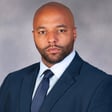
Customer Experience Officer feat. Thomas Linton (Part 2)
Today’s episode will feature the role of a Customer Experience Officer. The Customer Experience Officer (CXO) is a fast-growing role in business culture. This person ensures that the company vision and values match with the customer’s experience using their product or service. They shape what a company offers to its customers. For example, if I visit an airport lounge such as the Delta Sky Club, the CXO would set standards for the Greeters, Service Staff and Kitchen to ensure I am happy and comfortable during my trip. They make sure the customer is getting the most value.
As a salesperson myself, this philosophy is the north star of success so I have been eager to get Thomas Linton on the show. Thomas refers to himself a Customer Zealot and has succeeded developing products and services at banks, consumer packaged goods companies, financial services and healthcare companies. His foundation is strengthened with experience in Sales, Marketing, Engineering, Project Management and applying Six Sigma practices. I’m excited to learn from him today and see what lessons I can apply to strengthen my own sales future and how I service customers.
https://www.linkedin.com/in/thomaslinton/













